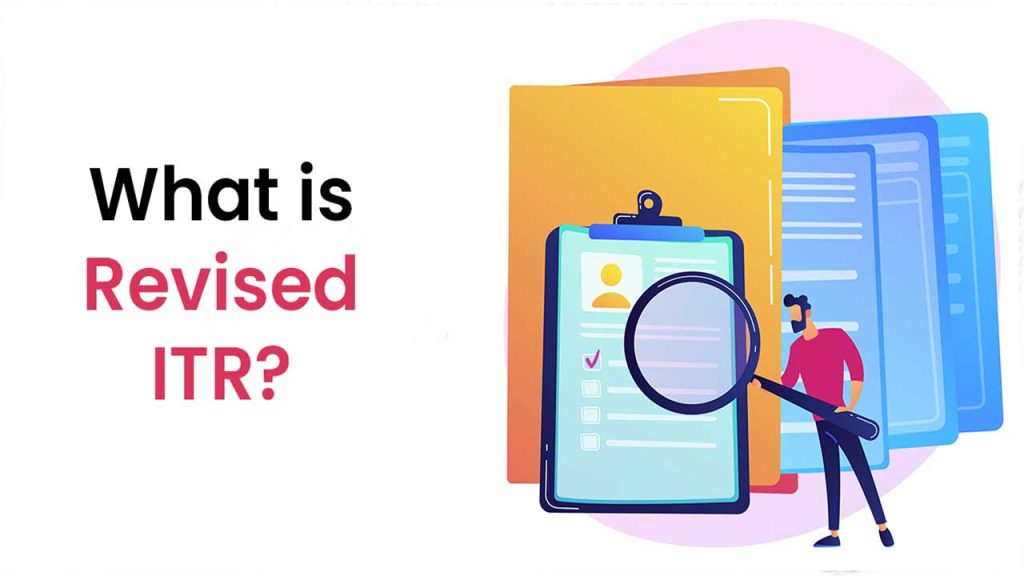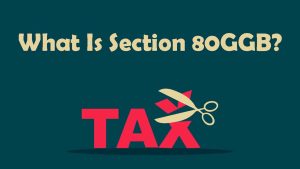Revised ITR – At the date of submitting the income tax return (ITR), we take the appropriate precautions to never make any errors. Some times, we can make an error when filing our ITR at the very last moment. This may involve listing the incorrect bank account number, failing to record interest income, or reporting incorrect deductions, etc.
If you have found the error since filing your income tax return, you will correct the error as permitted underneath the current tax law. Section 139(5) of the Income Tax Act requires taxpayers to correct their fault by filing a new income tax return.”
This section says that if anyone finds some error or inaccurate statement after filing their report, they may apply a revised return at any period prior to the end of the applicable AY or prior to the completion of the AY whichever is earlier. The review year shall be the year directly after the FY for which the return is filed. So, if you found a mistake in your ITR, here’s how you can submit a revised return.
What is a revised return?

The amended return helps you to correct the mistake or lack of the details made at the time of filing the original ITR. Filing an updated return essentially means re-filing your return, except this period with the accurate details When filing an updated return, you need to mention the specifics of the original return.
Who can file it?
Any individual who filed his/her ITR is eligible to update it under section 139(5) in order to supply the tax department with the relevant information. Previously, only such taxpayers who filed an ITR before the time limit expired were entitled to amend their returns. Taxpayers who filed late returns, i.e. just after the initial date for filing an ITR, were not permitted to amend it. Even late returns can also be updated.
Last date to file revised ITR
Previously, tax laws required taxpayers to file a revised report until one year after the conclusion of the AY. This indicates that the taxpayer has 2 years from the end of a particular FY (the year for which the return is filed) to fix the error and file an updated return. However, the time limit for filing an updated ITR was shortened from 2018-19.
The time limit for the updating of the ITR has been shortened from FY 2018-19. Under new income tax rules, you now have time till the end of the applicable AY to correct the error. As a result, after you have filed ITR for FY2019-20, you will have time until March 31 2021, to rectify your error if any.
How many times you can file a revised return
There really is no cap on the number of times you will file an updated return. Know, you are expected to include specifics of your original ITR each time you submit a revised return. The revision of your tax return is a chance for you to fix your mistake, however, one must avoid the misuse of this program and retain the utmost caution while filing your original tax return.
Things to remember before filing a revised return
After you have submitted your revised ITR, make sure that you would have confirmed the same. The income tax department would not approve your revised tax return until it has been verified by you. To check your revised ITR, you may use any of the 6 accessible techniques to validate your ITR, i.e. e-verification utilizing electronic methods like Aadhaar, OTP, EVC via net banking or by physical verification by submitting a signed copy of ITR-V (Acknowledgement Receipt) to CPC, Bangalore.
Once the assessing officer has finished the scrutiny assessment of your ITR under section 143(3) of the Income-tax Act, you could not submit a revised return.
As a taxpayer, you should note that perhaps the time frame for correcting the discrepancy in your tax return and for filing the late return will be the same, i.e. 31 March of the applicable appraisal year. Therefore, if you file a delayed return for FY 2019-20 (AY 2020-21) on March 31, 2021, you may lose an opportunity to correct an error made by you, if there are any, in your ITR.



